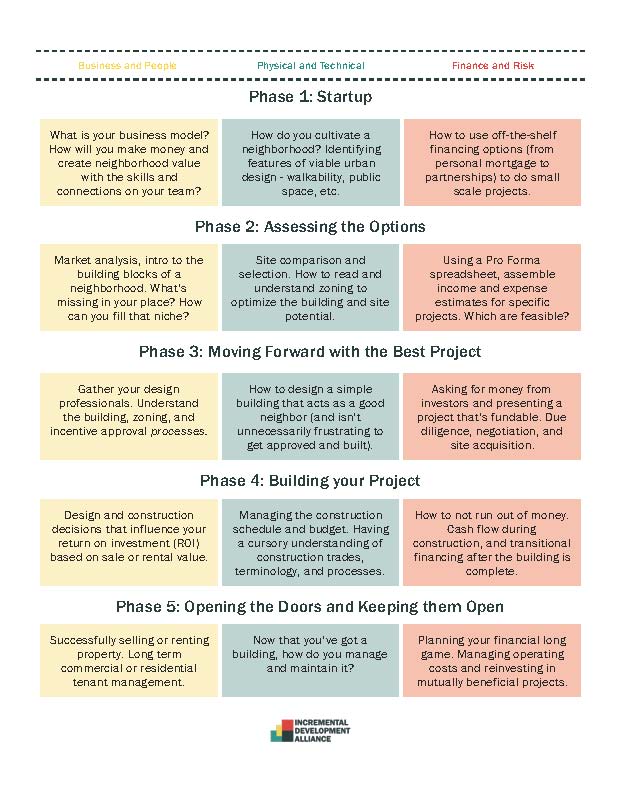 If you present information on the nuts and bolts of what it take to develop smaller-scale, incremental projects and the audience includes elected officials, municipal staffers, and local activists, they will ask you "What can our town do to encourage building differently?" It is not so much what a municipality can do, but what the individual leaders in a town are willing to do. Here is my list for those leaders.
If you present information on the nuts and bolts of what it take to develop smaller-scale, incremental projects and the audience includes elected officials, municipal staffers, and local activists, they will ask you "What can our town do to encourage building differently?" It is not so much what a municipality can do, but what the individual leaders in a town are willing to do. Here is my list for those leaders.
1. Stop trying to guess how much parking is needed. Eliminate off-street parking minimums from your regulations.
2. Manage the supply of public parking with rational pricing. Convenient on-street parking should cost more than a space on the top floor of a parking deck two blocks away.
3. Get serious about streets as public spaces. Narrow lanes to 10 feet. Convert dumb Stroads to boulevards. Put on-street parking everywhere. Install better bike infrastructure like buffered bike lanes. Replace unwarranted traffic signals with stop signs. Don't wait for your Public Works Director to lead this effort. (Believe me, he's had plenty of time).
4. Stop letting your fire marshal design the town. Direct the Fire Department to figure out how to provide good emergency services on a network of connected low speed streets.
5. Overhaul your zoning. Get rid of minimum lot area and minimum lot width. Dump the silly maximum lot coverage percentage. The best incentives for incremental development support a clear vision and a reasonable process. Your Comprehensive Plan may contain something resembling a clear vision, but do your zoning reg's and development standards screw up your chances for getting it delivered?
6. Think Small and Think Local. Encourage the small operators you have in your town and don't worry about convincing large developers to come from out of the area to fix your town. They are probably not coming. If they do, agree to come and build in your town, the results are rarely what you had in mind.
7. Dig deep. Cowboy up. Find some allies. Making any of these thing a reality in your town will stir up some shit. Ask yourself if how much political risk or career risk you are willing to take to make a difference. Figure out what your Plan B is in case you lose the election, get demoted, or get fired. Once you have your downside covered, find some serious people to work with and make some changes.


 When I hear the question "How Do I get Started as a Developer?" it is usually followed by a string of questions which amount to "Can you draw me a map that will guide me through every detailed step to becoming a developer?"
When I hear the question "How Do I get Started as a Developer?" it is usually followed by a string of questions which amount to "Can you draw me a map that will guide me through every detailed step to becoming a developer?"